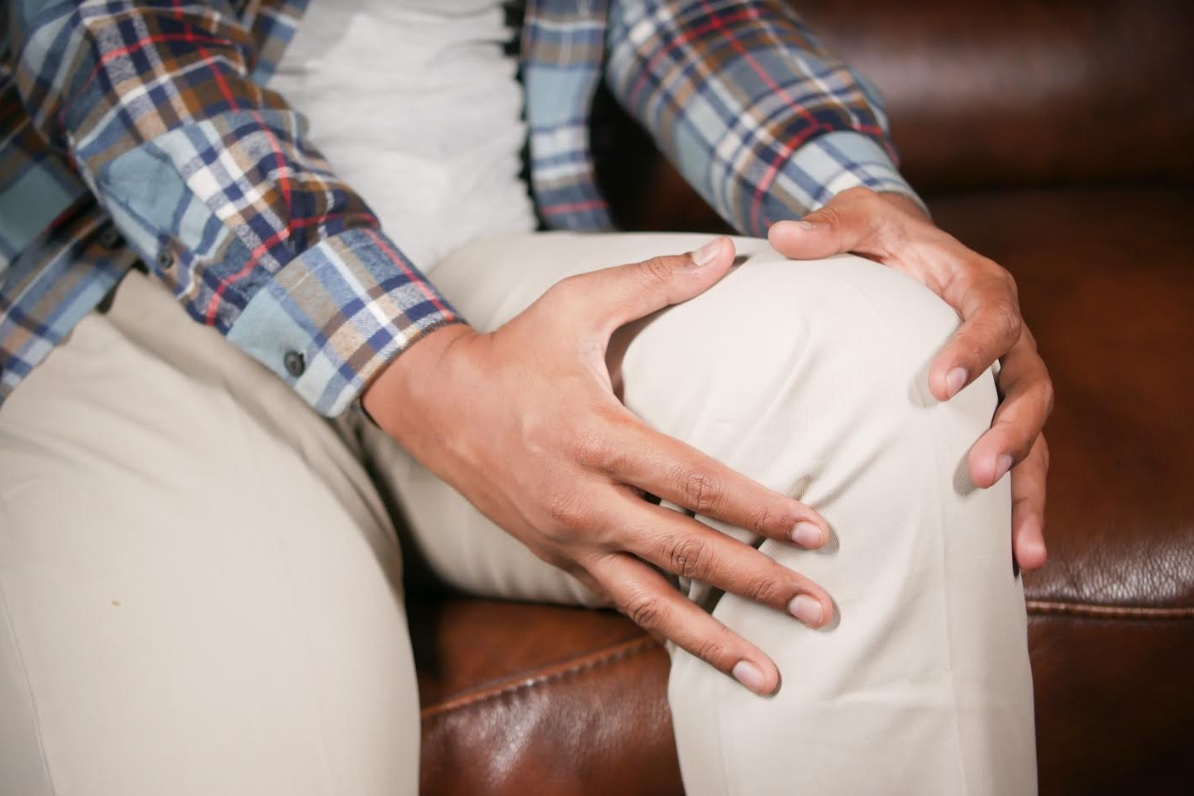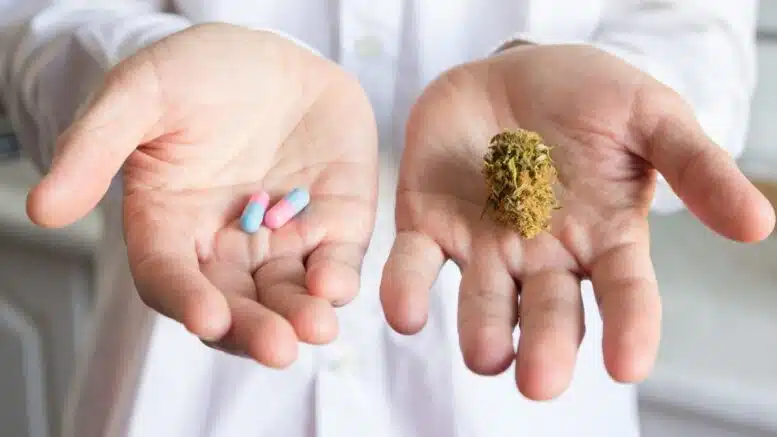Muscle relaxers are medications that treat skeletal muscle pain, cramps, and spasms. Medical experts may recommend it with other treatments, like physical therapy, to maximize its benefits.
Aside from prescription medications, health professionals also investigate medical marijuana as a muscle relaxer. Compounds from cannabis, such as tetrahydrocannabinol (THC) and cannabidiol (CBD) are able to provide relaxation to the mind and body.
Therefore, many may wonder if taking a muscle relaxer such as cyclobenzaprine and consuming weed simultaneously can enhance the relaxing effects, or if it can have dangerous effect on the health.
Here’s what you need to know:
Can You Take Muscle Relaxer And Weed?
If you’re currently on a muscle relaxer like cyclobenzaprine, consuming cannabis can increase your risk of adverse side effects. Cannabis can have a multiple effects on the human body, many of which are still unknown. While CBD, THC and THCA strains from Exhalewellness have more specific effects, cannabis acts by leveraging the synergistic action of multiple molecules. Some of these interactions are still under investigation, and science still didn’t provide us with a full picture of how these substances interact with our endocannabinoid system. So the question whether you can use weed if you take cyclobenzaprine (Flexeril) is still debated, and there’s no final answer to this. Nonetheless, it still much better to err on the side aof caution since the interaction between cannabis and muscle relaxers can be quite dangerous.
Today, most experts highly discourage it due to the following risks:
- Dangerous drug interactions: Serotonin syndrome is a potentially lethal adverse reaction that may occur in people mixing cyclobenzaprine with substances that increase the levels of serotonin. Athough it is not clear to what extent, cannabis compounds may increase serotonin levels, leading to potentially life-threatening interactions.
- Drowsiness: Muscle relaxers can cause drowsiness and fatigue. Since cannabis also has sedative effects, taking it with a muscle relaxer can increase sleepiness, hindering one’s function.
- Risk of falling: Taking muscle relaxers and weed at the same time can cause dizziness. Both substances have this side effect, which may worsen and lead to impaired motor coordination when you consume highly potent THC. This may lead to an increase risk of slipping and falling, which can be very dangerous in older people.
- Nausea And Vomiting: Muscle relaxers may cause nausea and vomiting, usually accompanied by stomach cramps. These side effects share the same symptoms with cannabis hyperemesis syndrome (CHS), one of the possible health risks for long-term regular weed consumers.
- Dry Mouth: Mouth dryness is a common side effect of muscle relaxers, which overlaps with the impact of taking THC in high doses. This issue can lead to dental problems and throat irritation.
- Poor Cognitive Function: Muscle relaxers and weed’s sedative effects can lead to poor cognitive function. It may cause brain fog, which can affect one’s memory and concentration. This effect is particularly dangerous in the elderly who might experience impairment in judgement and thinking, difficulty concentrating and confusion.
Health professionals strongly discourage taking a muscle relaxer and medical marijuana simultaneously. Sticking to one treatment option is the safest.
How To Take Muscle Relaxants Safely
Taking muscle relaxers can be safe with the guidance of a health professional. It’s a reliable treatment option for chronic muscle pain and spasms. Follow these tips to ensure your safety:
- Take As Prescribed: There’s no over-the-counter muscle relaxer due to its risks without the proper guidance of a medical expert. Hence, it’s best to follow your doctor’s prescription when taking one. Refrain from increasing the dose when it doesn’t take effect immediately. When your current medication doesn’t work as expected, inform your doctor to prescribe a better alternative. A health professional will also guide you through transitioning to a different prescription since a sudden switch can amplify side effects.
- Avoid Drinking Alcohol: Alcohol can intensify the side effects of muscle relaxers, such as drowsiness, nausea, and vomiting. Therefore, one must avoid drinking alcohol when taking any muscle relaxant.
- Avoid Sleeping Meds: When taking any sleeping medication, inform your doctor first. Although some sleeping aids have no known interactions with muscle relaxants, their effects can cause brain fog. In addition, muscle relaxers may be enough to induce sleep, so taking an additional sleeping pill may no longer be necessary.
- Be Cautious Of Psychotropic Drugs: Inform your doctor if you’re taking psychotropic drugs, like antidepressants, anti-anxiety, or mood stabilizers. These medications may interact with muscle relaxers and worsen their side effects.
- Avoid Cognitive Activities: Avoid activities like driving and machine operation when taking a muscle relaxer. Your lack of focus can lead to accidents, so it’s best to refrain from any task that requires concentration.
Adhering to your doctor’s guidance when taking any muscle relaxer such as cyclobenzaprine is best to maximize its benefits and minimize the side effects.

Is Weed An Effective Muscle Relaxant?
Cannabis is known for its relaxing effects. Health professionals and researchers further investigate it as an alternative to muscle relaxers since it has fewer side effects. Early studies show cannabis’ potential through these benefits:
- Offers Anti-Inflammatory Effects: Some muscle pain and spasms are due to inflammation. In this case, weed’s anti-inflammatory effects associated with THC and CBD may help. In particular, some people prefer taking CBD products for this product over THC ones or marijuana itself, due to their general lack of psychoactive effects.
- Relieves Muscle Spasticity: Muscle spasticity is a condition that stiffens the muscles, causing discomfort, pain, and limited movements. Cannabis’s relaxing effects can release muscle tension and relieve spasms, making it a promising alternative to prescription muscle relaxers.
- Aids Overall Relaxation: Consuming cannabis at safe doses can make one feel more relaxed. Since it aids body and mind relaxation, it can help treat chronic pain and muscle soreness.
- Comes In Various Products: Cannabis products have become more widely available upon legalization in several states. As a result, many wellness shops and dispensaries offer cannabis specifically for relieving body pain.
- Can be used topically: You can consume cannabis for muscle relaxation in many ways. You can apply balm or oil around the affected area to help provide instant relief. This may significantly reduce the risk for psychotropic side effects and adverse reactions.
Conclusion
Muscle relaxers and cannabis provide effective treatment options for muscle pain and other body aches. However, taking them at the same time with cannabis and its derivatives can intensify their adverse effects or be plainly dangerous. Consult a health professional to know which treatment is best for your condition.
Article edited and fact checked by our editorial team. This article contains sponsored links
About the author:

Dr. Claudio Butticè, Pharm.D., is a former Pharmacy Director who worked for several large public hospitals in Southern Italy, as well as for the humanitarian NGO Emergency. He is now an accomplished book author who has written on topics such as medicine, technology, world poverty, human rights, and science for publishers such as SAGE Publishing, Bloomsbury Publishing, and Mission Bell Media. His latest books are “Universal Health Care” (2019) and “What You Need to Know about Headaches” (2022). A data analyst and freelance journalist as well, many of his articles have been published in magazines such as Cracked, The Elephant, Digital Journal, The Ring of Fire, and Business Insider. Dr. Butticè also published pharmacology and psychology papers on several clinical journals, and works as a medical consultant and advisor for many companies across the globe.
References:
- Carter GT, Rosen BS. Marijuana in the management of amyotrophic lateral sclerosis. Am J Hosp Palliat Care. 2001 Jul-Aug;18(4):264-70. doi: 10.1177/104990910101800411. PMID: 11467101.
- Mack A, Joy J. Marijuana as Medicine? The Science Beyond the Controversy. Washington (DC): National Academies Press (US); 2000. 7, MARIJUANA AND MUSCLE SPASTICITY. Available from: https://www.ncbi.nlm.nih.gov/books/NBK224382/
- Keegan MT, Brown DR, Rabinstein AA. Serotonin syndrome from the interaction of cyclobenzaprine with other serotoninergic drugs. Anesth Analg. 2006 Dec;103(6):1466-8. doi: 10.1213/01.ane.0000247699.81580.eb. PMID: 17122225.
- Qian Y, Gurley BJ, Markowitz JS. The Potential for Pharmacokinetic Interactions Between Cannabis Products and Conventional Medications. J Clin Psychopharmacol. 2019 Sep/Oct;39(5):462-471. doi: 10.1097/JCP.0000000000001089. PMID: 31433338.
- Volkow ND, Swanson JM, Evins AE, et al. Effects of Cannabis Use on Human Behavior, Including Cognition, Motivation, and Psychosis: A Review. JAMA Psychiatry. 2016;73(3):292–297. doi:10.1001/jamapsychiatry.2015.3278
Article updated on March 19, 2024
